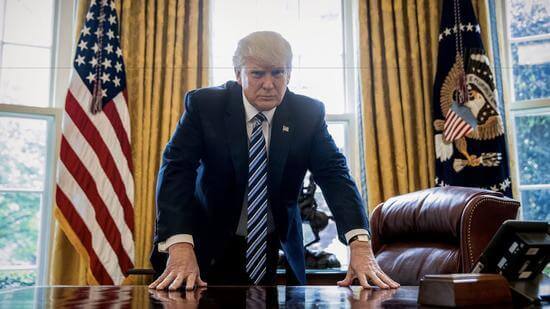Playback speed:
Fair and Reciprocal Trade: A Biblical and Constitutional Perspective
In a world of global commerce, trade policies shape nations’ economic security. With President Donald J. Trump’s recent Fair and Reciprocal Plan, the United States aims to correct trade imbalances and restore fairness in international trade. But beyond the economic implications, how does this plan align with a Biblical worldview and a Constitutional perspective? Let’s examine both aspects.
A Biblical Worldview on Trade and Fairness
Justice and Fairness in Trade
The Bible strongly emphasizes just balances and honest transactions. Proverbs 11:1 states, “A false balance is an abomination to the Lord, but a just weight is His delight.” Trade should be fair and not one-sided. If the U.S. has been allowing other nations to benefit disproportionately from open markets while restricting American exports, correcting this imbalance is an act of justice, not selfishness.
God’s expectation of economic justice is evident throughout Scripture. Leviticus 19:36 instructs, “You shall have just balances, just weights, a just ephah, and a just hin: I am the Lord your God, who brought you out of the land of Egypt.” Trade should be conducted with fairness and reciprocity, ensuring that one nation does not exploit another for gain.
National Stewardship and Responsibility
Scripture teaches that nations are responsible for governing wisely and protecting their interests. Romans 13:1-7 affirms that government exists to uphold justice and protect its people. The U.S. running a trade deficit every year since 1975, accumulating over $1 trillion in 2024 alone, demonstrates a failure in economic stewardship. Deuteronomy 28 warns against the consequences of excessive dependence on foreign nations. A nation that always imports more than it exports eventually loses control over its economy.
Moreover, economic dependence can be a form of enslavement. Proverbs 22:7 warns, “The rich rules over the poor, and the borrower is the slave of the lender.” If America allows foreign nations to dictate trade policies unfairly, it risks losing its ability to govern its economic future.
Protecting American Workers and Families
God commands that we provide for our families. 1 Timothy 5:8 declares, “If anyone does not provide for his relatives, and especially for members of his household, he has denied the faith and is worse than an unbeliever.” This principle applies to economic policies that prioritize American workers and industries.
Unfair trade agreements have led to the decline of American manufacturing and industry, negatively impacting middle-class families. The Fair and Reciprocal Plan seeks to restore these industries, protecting workers from unfair competition and economic hardship. The U.S. must be vigilant in preventing economic policies that weaken domestic employment and create undue reliance on foreign markets.
Moral Responsibility in Global Trade
While correcting trade imbalances is necessary, America must still ensure ethical commerce. Proverbs 16:11 reminds us that “honest scales and balances belong to the Lord.” The U.S. should not merely retaliate but promote just and honorable trade while avoiding partnerships that encourage forced labor, exploitation, or oppression.
Modern trade policies must reflect moral responsibility regarding human rights abuses and unethical labor practices abroad. Many trading partners engage in forced labor, environmental destruction, and exploitative conditions. The U.S. has a moral duty to ensure that its trade policies do not support these injustices but promote freedom, fairness, and economic integrity.
————-
A Constitutional View of Trade Policy
Originalism and Economic Independence
The Founding Fathers envisioned an economically independent America, not one subjugated by unfair global trade. Alexander Hamilton’s 1791 Report on Manufactures advocated for tariffs to prevent foreign nations from dominating American industry. The Constitution, in Article I, Section 8, Clause 3, grants Congress the power to regulate commerce with foreign nations. Trump’s approach aligns with this original intent, ensuring that America is not economically subservient to other nations.
Historically, tariffs were a significant source of U.S. government revenue in the republic’s early years. The founders believed in using tariffs to protect American industries while allowing fair trade with foreign partners. The Fair and Reciprocal Plan echoes this principle by ensuring foreign nations do not unfairly exploit U.S. markets.
Natural Law and Free Markets
Natural Law emphasizes economic freedom and fairness. Trade, when truly free and reciprocal, benefits all. However, foreign tariffs and protectionist policies distort this ideal. For example, India charged a 100% tariff on U.S. motorcycles which currently ranges from 40-50%, while the U.S. only charges 2.4% on Indian motorcycles. Such distortions undermine natural competition and voluntary exchange.
The Fair and Reciprocal Plan upholds the Founders’ vision of balanced commerce by addressing these inequalities. A truly free-market economy cannot function if one side is burdened with unfair restrictions while the other enjoys unrestricted access.
Federalism and National Sovereignty
Trade is not just an economic issue but also a matter of national sovereignty. The U.S. must set its trade policies rather than being dictated by globalist organizations or foreign governments. President Trump’s approach reaffirms American self-determination, preventing excessive reliance on foreign markets while ensuring that American companies are not taxed unfairly abroad.
The Constitution allows for state and federal collaboration in economic growth, but it entrusts the federal government with ensuring fair commerce among nations. The Fair and Reciprocal Plan reinforces this balance of power, allowing states to benefit from fair trade policies while upholding national economic security.
Judicial Restraint and Executive Authority
While trade policy falls under executive action, it must still be constitutionally sound and checked by Congress. The Constitution gives the legislative branch power over commerce, meaning the executive branch should not solely dictate long-term trade decisions.
President Trump’s trade actions—including reciprocal tariffs and renegotiating unfair agreements—align with the principle of executive authority in international relations. Still, they must be balanced with congressional oversight to maintain proper constitutional order.
Conclusion: A Trade Policy Rooted in Justice and Constitutional Fidelity
President Trump’s Fair and Reciprocal Plan is not just an economic policy but an issue of justice, stewardship, and national responsibility. From a biblical perspective, it aligns with God’s principles of fairness, protecting workers, and ensuring responsible governance. From a constitutional standpoint, it reinforces the Founders’ vision of economic independence, free markets, and national sovereignty.
Trade policy should always reflect biblical justice and constitutional principles, ensuring fair, ethical, and self-sustaining commerce. By restoring reciprocity, national independence, and economic justice, the U.S. moves toward a more prosperous and just trade system, both morally and constitutionally sound.
As Christians and as Americans committed to the original intent of the Constitution, supporting trade policies that correct injustice while maintaining ethical integrity is not just a political stance—it is a moral and constitutional duty.
References: White House
-
President Trump Demands Fair, Reciprocal Trade February 13, 2025
-
Reciprocal Trade and Tariffs February 13, 2025




